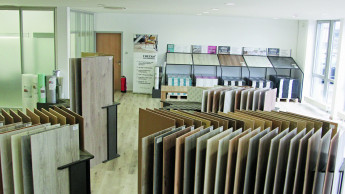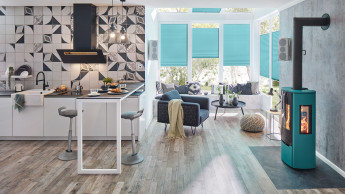deep insights, facts & figures
24.01.2013
Garden centres in the Arabian Peninsula? In Dubai, the biggest city in the United Arab Emirates, anything is possible. There are five garden centres at present
The Arabian Peninsula is one of the hottest and driest parts of the world. Who on earth would hit upon the idea of operating a garden centre there? We’ll hazard a guess: Dubai, where anything is possible. Anyone who greens and irrigates the kilometre-long central reservations of their main roads will also build a garden centre. It’s plain to see that the desert is alive. In Dubai alone, the biggest city in the United Arab Emirates (UAE), there are five garden centres at present. The Dubai Garden Centre close to Sheikh Zayed Road, with a sales area of some 5 600 m², is the biggest of its kind in this city of rapidly growing skyscrapers on the Persian Gulf. The indoor plants on offer in the store are imported from the Netherlands, while the outdoor varieties are grown on the spot in plant and tree nurseries. The Desert Group, owner of the garden centre, breeds these plants on an area of 930 000 m² in the UAE, to which come a further 460 000 m² overseas. The product offer in the store also includes stunning pots and planters, tools, gloves, plant growing frames, brackets, watering cans, fertilizers, pesticides, irrigation systems, composts and chemicals. Garden furniture is also available, as well as decorations and accessories such as water features, fountains and statues, barbecues, chimeras, garden lights and oil burners. Both a florist’s and a café-restaurant are integrated into the garden centre. The Dubai Garden Centre belongs to the Dubai-based Desert Group, a conglomerate. It was founded in 1988 and currently has a workforce of 3 400. In addition to garden centres and plant breeding businesses it also works in the areas of garden planning, planting and maintenance, pool construction, pool complexes and golf courses, and carries out stone and paving jobs. The group opened its second garden centre at the end of October 2011. This one is located in Abu Dhabi, the UAE’s second-biggest city. Danny Powell, general manager of both the Dubai and Desert garden centres, says: “Our deliveries to Abu Dhabi were growing at such a fast rate, it was a natural move to ‘branch out’ into Abu Dhabi.” The population there is developing at a similarly headlong rate as in Dubai, so that a relatively narrow demographic stratum, mainly consisting of affluent westerners, is demanding more and more garden products. Only about 15 per cent of the population of the Emirates are “locals”, meaning they are citizens, while 85 per cent are newcomers or “residents”. Of these, in turn, some 80 per cent come from Pakistan, India or Sri Lanka etc, and are employed in the low-wage sectors. The garden centre closes a gap in the market, most especially for its western-oriented customers. For Jane and Matthew Benniston this means that they can now shop locally: “One of the problems we’ve found since being in the UAE is that it’s always a problem to simply do things yourself, to be able to buy the equipment you need, whether it’s for DIY or gardening.” (The National, 24.11.2011) The product offer in the Abu Dhabi garden centre is similar to that in Dubai, apart from a few local adjustments. At weekends the “Ripe” farmers’ market, which sells organically produced food, is held there. The Desert Garden Centre is a joint initiative between the Abu Dhabi municipality and the Desert Group. But the Desert Group is by no means the only operator of garden centres in Dubai or the Arabian Peninsula. Royal Garden Centre, for example, operates two outlets in the Al Barsha and Jumeirah districts of Dubai. The parent company is a well-known manufacturer of building materials. Another operator is the Zaid Alhussain Group, which opened a first Sultan Garden Centre in Riyadh, the capital of Saudi Arabia, in 1986. The company now operates a total of five garden centres: two in Riyadh, one each in Jeddah on the Red Sea and in Khobar on the Persian Gulf (both in Saudi Arabia), plus one in Dubai. Download:
Related articles
Read also











